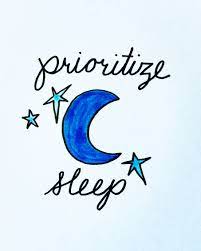No one enjoys feeling stressed out, but unfortunately, it’s a part of life. Whether you’re dealing with a difficult situation at work or just have too much on your plate, stress can take its toll on your mind and body. If left untreated, the side effects of stress can be debilitating. In this blog post, we will discuss the causes and effects of stress, as well as some tips for reducing and managing it.
Contents
What Is Stress?
 Stress is a feeling of emotional or physical tension. It can come from any event or thought that makes you feel frustrated, angry, or nervous. Stress is your body’s response to a challenge or demand. In short, stress is any type of change that requires your body to adjust.
Stress is a feeling of emotional or physical tension. It can come from any event or thought that makes you feel frustrated, angry, or nervous. Stress is your body’s response to a challenge or demand. In short, stress is any type of change that requires your body to adjust.
It is considered a normal part of life. In fact, a certain amount of stress can be beneficial. For instance, stress can help you deal with difficult situations, sharpen your focus, and motivate you to do your best. However, too much stress can have negative effects on your health.
And this is where it becomes important to learn how to reduce and manage stress in our lives. Because too much stress can impact our physical, mental, and emotional health in more ways than we realize. Therefore, in this blog post, we’ll be discussing the side effects of stress and how to reduce and manage them.
What Are The Side Effects Of Stress?
There are numerous side effects of stress when it becomes chronic. These are typically categorized into four categories to give a clear understanding. Let’s discuss each in detail:
Physical side effects
This type of side effect can be seen or felt. They are usually a result of the body’s autonomic nervous system response to stress. These are:
- Headaches: It is one of the most common side effects. It is caused by increased tension in the muscles of the head and neck.
- Muscle tension or pain: This can happen due to the body’s fight-or-flight response. In this, the muscles tighten to prepare for action. This can lead to pain in the back, neck, shoulders, and jaw.
- Stomach problems: Stress can lead to various stomach problems like indigestion, diarrhea, constipation, and nausea.
- Chest pain: This is caused by increased blood pressure and heart rate. For example, in a panic attack, one may experience chest pain.
- Fatigue: It might be difficult to concentrate and one may feel tired all the time.
These are some of the physical side effects of stress. Be aware of these and take steps to manage stress before it starts taking a toll on your health.
Behavioral side effects
 Some common behavioral side effects are as follows:
Some common behavioral side effects are as follows:
- Restlessness: This is another common side effect of stress. When you are stressed, your body is in a state of high alert, which can make it difficult to relax.
- Lack of motivation or focus: Sometimes, people with stress may find it difficult to concentrate or motivate themselves. This is because stress can interfere with your ability to think clearly.
- Procrastination: This is another common side effect of stress. When you are stressed, it can be difficult to get started on tasks or projects. This is because your body is focused on survival mode and not on task completion.
- Irritability or anger: It is not uncommon to feel more irritable or angry when you are stressed. This is because stress can trigger the fight-or-flight response, which can make you feel like you are in danger.
- Overeating or undereating: Your eating habits may change when you are stressed. Some people may overeat, while others may undereat. This is because stress can affect your appetite.
- Sleeping too much or not enough: It might be difficult to get a good night’s sleep when you are stressed. This is because your body is in a state of high alert, which can make it difficult to fall asleep. Alternatively, you may find that you are sleeping more than usual. This is because your body needs extra rest when it is under stress.
If you are experiencing any of these side effects, it is important to talk to your doctor or mental health professional. They can help you manage your stress and reduce the side effects that you are having.
Cognitive side effects
These are the side effects that affect your thinking, learning, and judgment. It includes:
- Constant worry: Stress makes you feel in constant worry and on edge all the time. This can lead to problems concentrating and focusing on tasks.
- Memory problems: Stress can also make it difficult to remember things. This is because stress affects the part of the brain responsible for memory.
- Negative thinking: It is very common for people who are stressed to have negative thoughts. This can lead to feeling hopeless and helpless.
- Racing thoughts: When you are stressed, your mind may race with anxious thoughts. This can make it hard to fall asleep at night or focus during the day.
It is believed that the cognitive side effects of stress can lead to problems in school, work, and relationships. If you are experiencing any of these side effects, it is important to seek help from a mental health professional.
Emotional side effects
 It is not uncommon to experience emotional side effects as a result of stress. Emotional side effects can include:
It is not uncommon to experience emotional side effects as a result of stress. Emotional side effects can include:
- Overwhelmed: This is feeling like everything is just too much and you can’t keep up. This can happen when there is a lot going on in your life or you are facing a big challenge.
- Depression: It is common to feel down or even depressed when you are stressed. This is because stress can lead to a decrease in serotonin, which is a chemical that helps regulate mood.
- Mood swings: This is very common, especially for women. You may find yourself feeling happy one minute and then angry or sad the next.
- Anxiety: This is when you feel like something bad is going to happen or you can’t cope with what is happening in your life. Anxiety can be very debilitating and make it hard to function on a day-to-day basis.
These are some of the most common side effects of stress. If you are experiencing any of these, it is important to take steps to reduce and manage your stress. Just know that you are not alone and there is help available. There are many ways to reduce stress. Find what works for you!
How Can You Manage Them?
There are a few things you can do to help manage the side effects of stress. These include:
Get moving
Exercise is a great way to reduce stress. It can help to clear your mind and give you some time to yourself. For example, go for a walk, run, or bike ride. You must understand the importance of getting moving because it also releases endorphins, which have mood-boosting effects. You can also try other activities such as yoga, tai chi, or meditation.
Keep a journal
A journal is always considered to be very therapeutic. It can help you to get all of your feelings and thoughts out without having to worry about anyone else’s reaction. This is a great way to track your stressors and see if there are any patterns. You may also want to write down how you feel after you have coped with the stressor. This will help you to see your progress and give you a sense of accomplishment.
Talk to someone you trust
If you’re feeling overwhelmed by stress, talking to a trusted friend, family member, or mental health professional can help. Just knowing that someone is there for you and wants to help can make a big difference. Your partner can be a great source of support, but they may also need some help themselves. If you’re both feeling stressed, consider attending a counseling session together.
Eat well
This is one of the most important things you can do for your health. Eating a healthy diet helps your body to function at its best and can help to reduce the effects of stress. There are many different ways to eat well, so find what works best for you and make sure to include plenty of fresh fruits, vegetables, and whole grains in your diet.
Prioritize sleep
 Sleep is critical for our physical and mental health, yet it’s something that many of us don’t get enough of. When we’re stressed, our bodies produce the hormone cortisol, which can interfere with sleep. A lack of sleep can then lead to even more stress. It’s a vicious cycle. If you’re having trouble sleeping, there are a few things you can do to try and improve your sleep quality:
Sleep is critical for our physical and mental health, yet it’s something that many of us don’t get enough of. When we’re stressed, our bodies produce the hormone cortisol, which can interfere with sleep. A lack of sleep can then lead to even more stress. It’s a vicious cycle. If you’re having trouble sleeping, there are a few things you can do to try and improve your sleep quality:
- Establish a regular sleep schedule
- Create a relaxing bedtime routine
- Avoid caffeine and alcohol before bed
- Keep your bedroom cool, dark, and quiet
Relax your muscles
It is important to find ways to relax your muscles when you are feeling stressed. There are a few different ways that you can do this. One way is to take a hot bath or shower. This will help to loosen up your muscles and make you feel more relaxed. Another way is to get a massage. This can be done by a professional or you can do it yourself. There are also many different types of relaxation techniques that you can use to help you relax your muscles. Find that works for you!
Practice relaxation techniques
Relaxation techniques work the fastest way to relax your stress. It can be done anywhere and anytime you need it. You can learn how to do relaxation techniques through books, audio recordings, or videos. Many people find deep breathing is the most effective way to reduce stress. You can also try progressive muscle relaxation, which involves tensing and relaxing different muscle groups in your body.
Spend time in nature
Nature is always there for you no matter what and can help reduce stress levels significantly. It helps to ground you and makes you feel more connected to the world around you. Spend time outside every day, even if it’s just for a few minutes. Take a walk in the park, sit under a tree, or simply admire the view.
Make time for hobbies
If stress is starting to take a toll on your life, it’s important to find ways to manage it. One way to do this is by making time for hobbies. Doing things you enjoy can help you relax and take your mind off of whatever is causing you stress. It can also be a good form of self-care. You can choose any hobby that interests you. Some ideas include painting, hiking, biking, gardening, and photography.
Seek professional help
 Sometimes the side effects of stress can be so overwhelming that you may need to seek professional help. A therapist can help you learn how to better manage your stressors and the side effects that come with them. Also, don’t be afraid to ask for help from family and friends. These people can provide support and understanding when you’re going through a difficult time.
Sometimes the side effects of stress can be so overwhelming that you may need to seek professional help. A therapist can help you learn how to better manage your stressors and the side effects that come with them. Also, don’t be afraid to ask for help from family and friends. These people can provide support and understanding when you’re going through a difficult time.
In addition, you can join a support group because they can provide helpful tips and resources. There are also many online support groups available that can offer guidance and advice. Remember, you’re not alone in this battle against stress. There are people who care about you and want to help you overcome your challenges.
Finally, make sure to take care of yourself both physically and mentally. When your body is healthy, it’s better equipped to handle stress. If you’re experiencing any negative side effects from stress that are interfering with your quality of life, don’t hesitate to reach out for help. Your well-being is worth it.
Conclusion
In conclusion, the side effects of stress can make life difficult to manage. Because these effects are often physical and mental, it can be difficult to cope with them on your own. However, by following the tips above, you can help reduce the side effects of stress and make life a little bit easier.
But, in severe cases, do not forget to seek professional help. This is the best way to get rid of stress and its side effects for good! After all, your health should always be a priority.
For more information and guidance please get in touch with our expert therapists at Therapy Mantra. They will be more than happy to assist you on your journey to recovery. Contact us today to learn more about our services. You can also book an online therapy session or download our free Android or iOS app.


